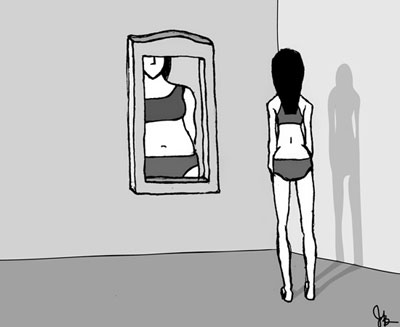
Up to 200,000 people in Ireland are reported to have an eating disorder, causing up to 80 deaths per year. You would struggle to find any female who says that they are happy with their body as we, by our nature, focus on the bad, and not on the good. We compare ourselves to others and wish we had what they had whilst not acknowledging our good points. Those of us who are tall wish we were shorter and those who are short wish we were tall. And when it comes to boobs, everyone wants the opposite of what the good lord gave them.
Most of us know about anorexia and bulimia, but there are many types of eating disorders which basically involve unhealthy relationships with food. Orthorexia, for example, is a fixation on food purity, and obsession with eating “clean”.

If you are concerned about a friend you think may be struggling, here’s how to go about tackling the issue:
- Know the signs: food rituals, skipping meals, constant comments about being ‘fat’, an obsession with being perfect etc are all common indicators. Keep in mind that everyone is different, so if you suspect, just keep a closer eye for a few days.
- Don’t confront them: This will only result in defensiveness and denial. Ideally, you would wait for your friend to come to you, but in the meantime, just let them know that you’ve noticed they haven’t been themselves.
- Be careful with your language: Don’t say “Oh my God, you are so skinny”, as they will take that as a positive thing. Instead, say “you don’t look very well, are you okay?”
- Don’t try to fix the situation yourself: Eating Disorders can be serious medical conditions. You wouldn’t try to fix cancer by yourself. Involve an adult that you trust.
You can read more and get support at http://www.bodywhys.ie
If you would like to support us and the work that we do, you can find out more below




